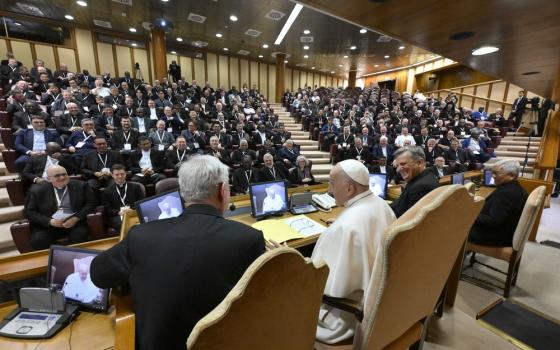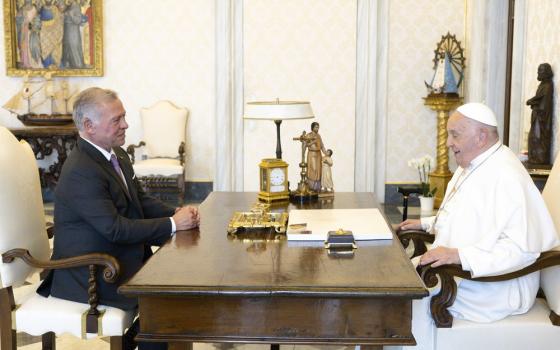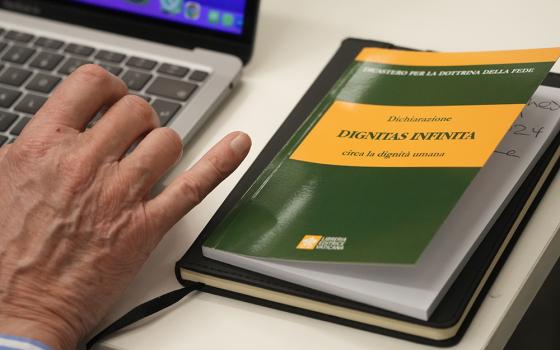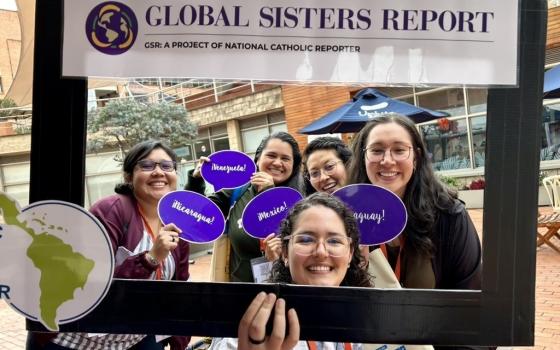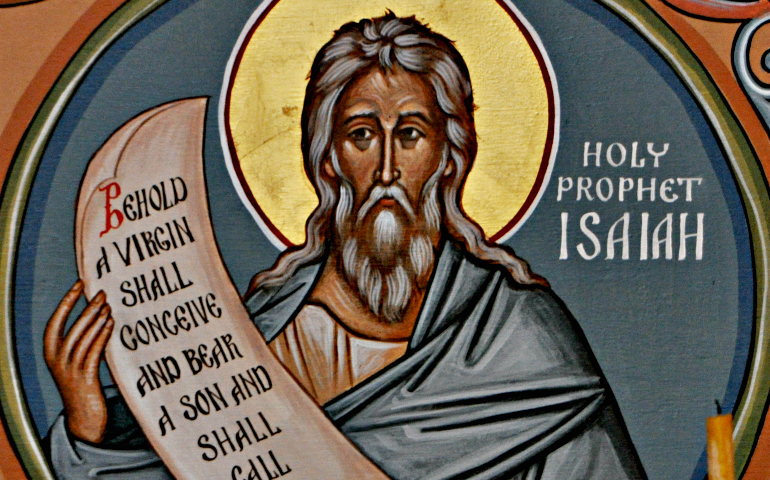
An icon of Isaiah in Christ the Savior Church in Chicago (Flickr/Ted, CC BY-SA 2.0)
One of the reasons I like Advent is that we get to hear from the Prophet Isaiah, who like the other Hebrew prophets comforts the afflicted and afflicts the comfortable. I love these prophets because despite living more than 2,500 years ago, they always seem to be talking about things that are still relevant today. They are both personal and political.
In his early writings, for example, Isaiah gives the leaders of Israel and Judah a bad time for their corruption, exploitation of the poor, and worship of false gods. That message could be preached today in almost every country in the world. Workers are exploited for profits; the rich live extravagantly while the poor go hungry. Rather than working together for the common good, it is every man for himself. And God is forgotten.
Sadly, human nature has not improved much in 2,500 years.
Isaiah was also critical of the wars that his countrymen got into. Israel with Syria tried to force Judah into a war with Assyria (today's Iraq), the superpower of his day. Judah called on Assyria for help, resulting in the destruction of Damascus and Israel, with Judah becoming a vassal state of Assyria. Later Judah reached out to Egypt for help in revolting against Assyria. All these international adventures ended in disaster.
Sadly, the Middle East has not changed much in 2,500 years.
Like Pope Francis, Isaiah pleaded for peace. His hope was that a son of David would usher in a time of peace and justice — this was the hope of people of Israel and Judah — but their political leaders and the rich were both inept and corrupt.
Again, things have not changed.
Today, we see too many countries divided by race, religion, class and tribal loyalties. Too often, these divisions are exploited for political purposes, and sometimes these divisions lead to violence, civil war and international conflict.
The early Christians saw in Jesus the fulfillment of the hopes and promises of Isaiah and the other prophets. Matthew uses the words of Isaiah to describe the coming of Jesus: "Behold, the virgin shall conceive and bear a son, and they shall name him Emmanuel, which means 'God is with us.' "
St. Paul saw Jesus Christ as "descended from David according to the flesh, but established as Son of God in power according to the Spirit of holiness through resurrection from the dead."
He is the Emanuel of Isaiah, the prince of peace, the just one, who will save his people from their sins.
The early Christians thought that Jesus would be coming back during their lifetimes to establish his Father's kingdom, a kingdom of justice and peace. It did not happen; God had a different plan, a plan that required our cooperation.
What the Christians gradually realized was that they are now the body of Christ in the world. It is our job to make the kingdom of God present in the world. God delegates.
Jesus fed the hungry and healed the sick while he was here; we now must continue that work or it will not be done.
He was Emanuel, "God is with us," but now we must be Emanuel, God's presence in the world.
He brought forgiveness and reconciliation to sinners; now we must be peacemakers reconciling a broken world.
He showed us how to love; now we must show the world what love means.
Matthew's Gospel teaches us that every person counts in this process. Matthew tells us how a young carpenter discovers that his fiancée is pregnant, and it was not by him. Rather than striking out with rage, he tries to protect her by dealing with it privately so that she will not be shamed. Such shaming in that time would have destroyed her and her baby.
This simple carpenter was an extraordinary man. He ended up not putting her aside but actually marrying her; he gave her and the child his name so that the boy was now of the house of David. Later, he fled his country to protect the life of this child from a cruel tyrant, and the family became refugees in Egypt.
Who could have known that the decisions of this carpenter would change the course of history? Who would have known that this refugee family would nurture the most important person to have ever lived? Who would have known that this pregnant teenager would become the most famous woman in history?
All because Joseph was a kind and loving man who understood that being a father was not just genetics.
When we see a refugee family, when we see a pregnant teenager, do we see just another problem, or do we see a member of the Holy Family? Do we see just another image on the screen, another statistic, or do we see a living, breathing, feeling person with the potential for great things?
During Christmas, we remember that Christ has come, that Christ is present here today, and that Christ will come again. But we also remember that Christ must be born in our hearts so that we can be his hands, his mind, his heart in our world today.
[Jesuit Fr. Thomas Reese is a senior analyst for NCR and author of Inside the Vatican: The Politics and Organization of the Catholic Church. His email address is treesesj@ncronline.org.]
Editor's note: We can send you an email alert every time Thomas Reese's column, Faith and Justice, is posted. Go to this page and follow directions: Email alert sign-up.





